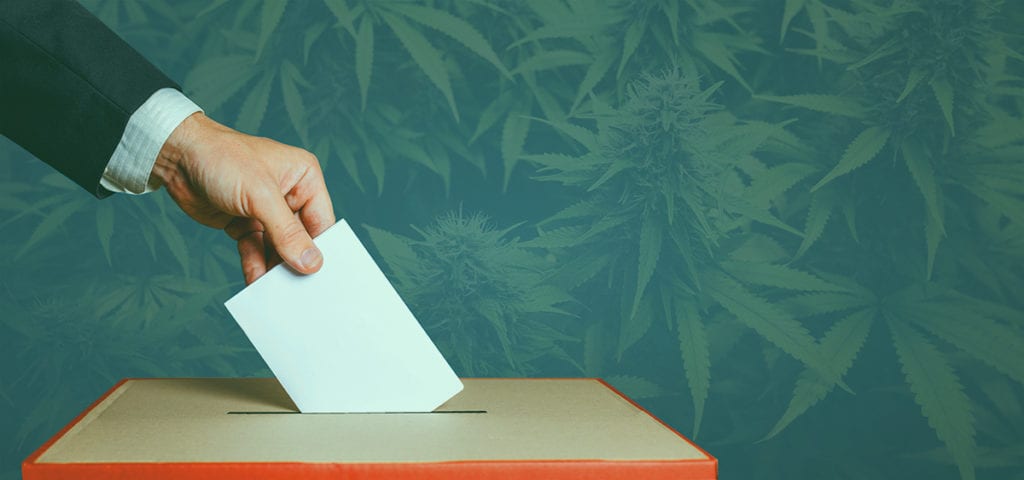Ohio Attorney General Dave Yost has issued a legal analysis on the state’s proposed cannabis legalization ballot initiative in an effort to provide “vital clarity and transparency” ahead of the November 7 vote.
Ohio Attorney General Provides Legal Analysis of Cannabis Legalization Ballot Question

Voter Holds Envelope In Hand Above Vote Ballot. Freedom Democracy Concept
Full story continued below.
Advertisement
Ohio Attorney General Dave Yost this week issued a legal analysis on the proposed ballot initiative to legalize cannabis in the state in an effort to provide “Ohioans with vital clarity and transparency” ahead of the November 7 vote.
“The people of Ohio hired me to do a job. I owe it to them to give them accurate information so they can make informed decisions. This work is for them.” — Yost in a press release
In the analysis, Yost contends that the legalization measure “is not expected to eliminate the black market” for cannabis products but the analysis does not take a position on the question.
The analysis notes that industry licenses would be based on numerous factors, including “wealth of the business seeking certification as well as the personal wealth of the owner or owners of the business”; “social disadvantage” based on race, color, ethnic origin, gender, physical disability, long-term residence in an area of high employment, or previous cannabis-related criminal offenses; and “economic disadvantage based on economic and business size thresholds and eligibility criteria aimed at stimulating development in qualified census tracts.”
“The new program would also implement an outreach initiative to educate potential participants about the program; provide financial assistance, loans, grants, and technical assistance to certified participants; encourage employment practices that focus on hiring and educating minorities, women, veterans, and persons with disabilities; fund various studies; and propose policy change,” the analysis says.
The analysis also notes that, if approved, the measure would create a program for cannabis addiction services to be implemented by the Ohio Department of Mental Health and Addiction Services, paid for by the 10% excise tax on cannabis products.
“The program would include best practices for education and treatment of individuals with addiction issues related to marijuana or other controlled substances,” the analysis says, “including opioids, as well as a toll-free telephone number Ohio residents could call to obtain basic information about addiction services available, and options for an addicted consumer to obtain help.”
Additionally, the AG’s analysis explains that the measure “does not address the interplay between the proposed state law and existing federal law” and that the federal government could still choose to prosecute those who violate federal law despite state law reforms.
Get daily news insights in your inbox. Subscribe
End